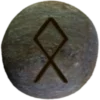
- This event has passed.
Alfablót 2024

Alfablót (2024) is an important sacrificial ritual in Asatru, honoring the elves (álfar) and ancestral spirits. This ancient Norse ritual typically occurred in late autumn, around the time of Vetrnætr, marking the transition into winter. Alfablót, held privately by each family, focused on strengthening ties with the spirits of their forefathers, believed to dwell among the elves. These beings held significant influence over the fertility of the land and the well-being of the family.
During the Alfablót, offerings were made, often including food, drink, and sometimes animal sacrifices, though the specifics varied by family and region. The blót took place within the home or at family burial mounds, emphasizing the intimate, personal nature of the rite. This sacrificial act aimed to honor and gain the favor of the elves and ancestors, ensuring protection, prosperity, and a successful winter season.
In Asatru practice today, Alfablót retains its spiritual importance. It symbolizes respect for the ancestors and the natural world. Practitioners often use this time to reflect on family heritage, acknowledge the passage of time. They seek guidance from ancestral spirits. Modern Alfablót celebrations may involve offering food and drink to the spirits, lighting candles, or gathering family to remember those who have passed.
The private nature of Alfablót contrasts with other blóts, such as Dísablót or Vetrnætr, which involved communal celebrations. Alfablót focuses on personal connection, making it unique among Norse rituals. Today’s Asatruar use this tradition to deepen their understanding of ancestral connections. It reinforces the belief in the cyclical nature of life and death.
By honoring both the elves and the spirits of their ancestors, those who practice Asatru during Alfablót recognize the intertwined relationship between the past and the present.
